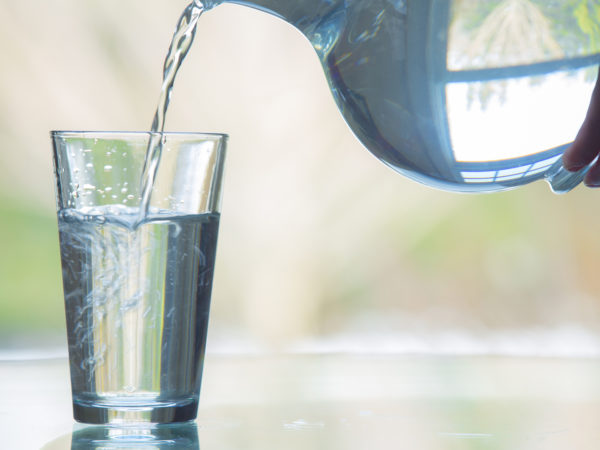Prepared to Beat the Heat?
I really am feeling the heat this summer. What’s heat exhaustion? Heatstroke? Can you tell me if feeling dizzy is a symptom?
Andrew Weil, M.D. | June 19, 2006

Feeling dizzy can be a symptom of both heat exhaustion or heatstroke, both of which can occur if you exercise outdoors during hot weather, or simply if you are exposed to high temperatures and don’t replace the fluids your body loses through sweat. Here’s a review of problems that can occur during the hot weather:
- Heat exhaustion: Symptoms include a mild increase in temperature, heavy sweating, pallor, muscle cramps, fatigue, weakness, dizziness, headache, nausea, or vomiting and fainting. Cooling off usually helps quickly. Get into an air-conditioned space as soon as possible, drink a cool beverage – water or a sports drink to replace minerals lost in sweat, take a cool shower or bath and change into light clothing. If your symptoms are severe or if you have high blood pressure, get immediate medical attention. You could be at risk for heat stroke, a more serious problem.
- Heatstroke (sometimes called “sun stroke”): This is a medical emergency and occurs when the body is no longer able to regulate its temperature and when the sweating mechanism is no longer operative. Body temperature can rise to 106° Fahrenheit or higher. Other symptoms include red, hot and dry skin, a throbbing headache, dizziness, nausea, confusion, and ultimately unconsciousness and coma. The elderly and ill are most vulnerable to heatstroke, but no one is immune. At particular risk are athletes who exercise vigorously in the summer months during the hottest periods of the day without staying properly hydrated. If you suspect someone is suffering from heatstroke, call for emergency help immediately and do what you can to cool the person – get the victim out of the sun and spray him or her with cool water. Don’t offer drinks of any kind.
- Heat cramps: These can develop when you exercise strenuously in hot weather – you’ll feel muscle pains or spasms in the legs, arms or abdomen. If this happens, find a cool, shaded place to sit quietly, drink clear juice or a sports beverage and don’t resume exercise for a few hours after the cramps subside. If they don’t ease within an hour, call your doctor. If you have a heart problem or are on a low-salt diet, call your doctor if you ever develop heat cramps.
- Heat rash: This is skin irritation caused by excessive sweating during the hot weather. The rash looks like a red cluster of pimples or small blisters and usually occurs on the neck and upper chest, in the groin, under the breasts and in elbow creases. Keep the affected area as dry as possible. Dusting powder can help, but don’t use any creams or ointments, which keep the skin moist and may make matters worse.
Andrew Weil, M.D.
Learn the difference between sun poisoning and sun stroke.









